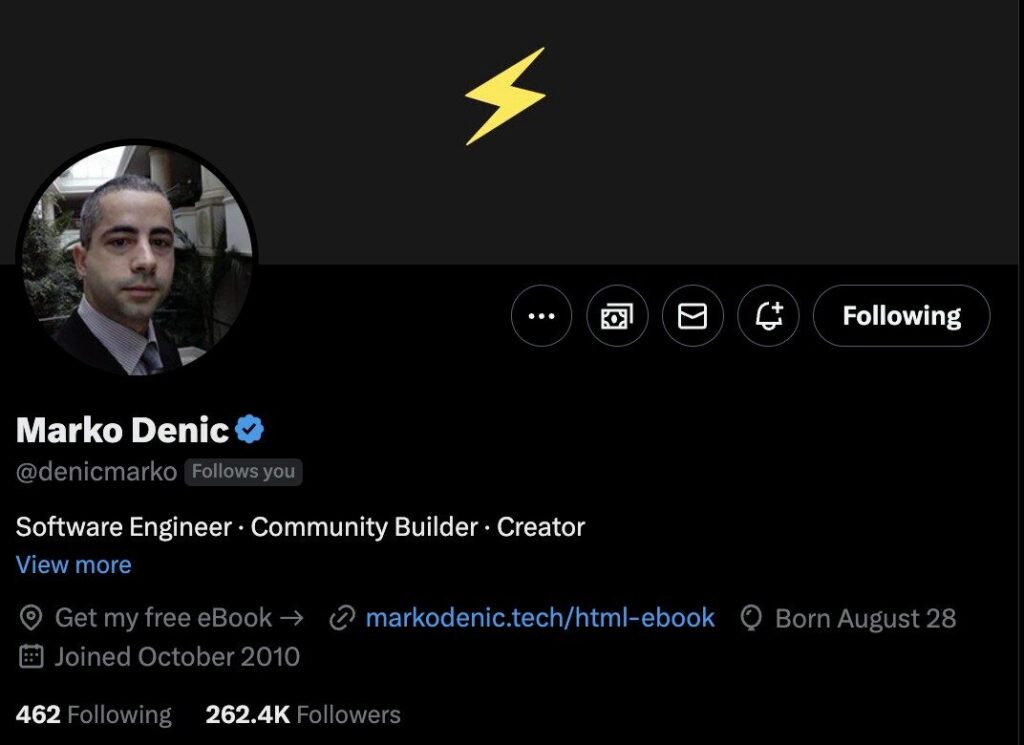Career
Build an Online Presence and Make Connections as a Junior Developer: How to Start?

So many established developers are already getting people’s attention online, so why should you even try to get out there? Well, because you can and because it will help you in so many ways. For example, you will rank better on Google, so when potential clients search your name, they will find your work quickly.
Next, you will get noticed! Having a discussion with other professionals can help you learn and find a job opportunity that’s the best for you. That’s why having a blog and online portfolio is essential in tech. Moreover, an online presence is a must-have thing for a developer because you’re building your personal brand. So, let’s start branding!
The Reality of the 2025 Junior Developer Market
Junior developers continue to grapple with a highly competitive job market, as coding bootcamps and online resources produce a steady influx of entry-level talent. But here’s what most career advice misses: the developers who stand out aren’t just showing code—they’re demonstrating how they think alongside AI tools and adapt to rapidly changing tech stacks.
The pace of change is relentless. It’s not just about learning JavaScript or Python anymore, it’s about keeping up with a constant flood of new frameworks, tools, and trends. The developers we’re placing successfully understand this reality and build their online presence accordingly.
AI as Your Development Partner, Not Your Competitor
The elephant in the room? AI tools like ChatGPT and GitHub Copilot are everywhere, and as a junior developer, it’s hard not to feel like you’re competing with them. Here’s the shift in perspective that’s working: GPT-5 is launching across platforms including GitHub Copilot, making it a better collaborator for agentic coding tasks.
Document your AI-assisted workflow instead of hiding it. Create content showing:
- How you use GitHub Copilot for code completion while maintaining code quality
- Your process for debugging with ChatGPT while understanding the underlying logic
- How you combine AI suggestions with your problem-solving approach
Modern hiring managers want to see you can leverage these tools effectively, not that you can code without them.
Your GitHub: Beyond Pretty Green Squares
Your GitHub account remains crucial, but the evaluation criteria have evolved. GitHub Copilot shines at speeding up the coding process with smart autocomplete suggestions, while ChatGPT excels at generating structured code and explaining implementation.
What 2025 GitHub profiles need:
AI-Assisted Projects with Documentation Show projects where you used AI tools but include detailed README files explaining your decision-making process. Hiring managers can spot AI-generated code—they want to see your thought process.
Cross-Platform Development Examples Progressive Web Apps (PWAs) and cross-platform development tools are gaining traction as businesses look for cost-effective ways to reach users on different devices. Showcase projects using React Native, Flutter, or PWA technologies.
Cloud-Native Understanding Even as a junior, demonstrate familiarity with cloud deployment. Use Vercel, Netlify, or GitHub Pages to show you understand modern deployment pipelines.
Blogging Strategy for the AI Era
The blogging landscape has shifted dramatically. While everyone’s writing “Getting Started with React” tutorials, the content that actually gets attention focuses on:
Learning in Public with AI Tools
Document your journey learning new technologies alongside AI assistants. Write about:
- “Learning Next.js 15: How I used GitHub Copilot and still got stuck on async components”
- “My first TypeScript project: When ChatGPT helped and when it didn’t”
- “Building a full-stack app in 2025: The tools that actually mattered”
Technology Decision Making
Python continues to dominate due to its versatility and extensive libraries like NumPy, Pandas, and TensorFlow. Write about why you chose specific tech stacks for projects, comparing modern alternatives.
Platform Strategy
Use platforms like Dev.to, Hashnode, or Medium for broader reach, but maintain your own blog for SEO benefits. Cross-post with canonical URLs pointing to your domain.
Social Media Presence That Actually Works
LinkedIn: Your Professional Command Center
LinkedIn remains essential, but the content strategy has evolved:
- Share quick wins from your learning journey
- Comment thoughtfully on posts from senior developers and CTOs
- Post about industry trends you’re observing as you learn
Twitter/X and GitHub Connections
On Twitter you can connect and actually discuss topics with prestigious CEOs, while both platforms help you stay up-to-date with industry trends. Follow AI researchers, framework maintainers, and developer advocates, not just influencers.

Portfolio Websites: Show Real Problem-Solving
Your portfolio needs to demonstrate more than technical skills. Understanding security best practices, including XSS prevention, SQL injection prevention, and authentication/authorization, is crucial for building robust web applications.
Portfolio Projects That Get Attention:
- AI-Enhanced Application: Build something that integrates OpenAI APIs or uses AI for a practical purpose
- Performance-Optimized Project: Show you understand modern web performance (Core Web Vitals, lazy loading, code splitting)
- Accessibility-First Design: Demonstrate knowledge of WCAG guidelines and inclusive design principles
Technical Writing Portfolio
Include technical writing samples:
- API documentation for your projects
- Architecture decision records (ADRs) for larger projects
- Post-mortem analyses of bugs you’ve fixed
The Skills That Actually Matter
Core Technical Competencies
Front-end frameworks like React, Angular, and Vue.js remain essential, with React favored for flexibility, Angular for large-scale projects, and Vue.js for simplicity.
But equally important:
- TypeScript proficiency (not just JavaScript)
- Testing familiarity (Jest, Cypress, Playwright)
- Version control workflow (Git, GitHub Actions basics)
- API integration skills (REST, GraphQL basics)
Emerging Skill Areas
Skills in sustainable AI practices and energy-efficient algorithms are becoming valuable as concerns about AI’s environmental impact grow.
Consider exploring:
- WebAssembly (WASM) for performance-critical applications
- Edge computing platforms (Cloudflare Workers, Vercel Edge Functions)
- Blockchain development basics (if relevant to your interests)
Networking in a Remote-First World
Remote work can feel isolating, especially for juniors who miss out on casual learning that happens in an office. Here’s how to build connections virtually:
Community Engagement
- Join Discord servers for your tech stack (React, Vue, Node.js communities)
- Participate in GitHub discussions on projects you use
- Attend virtual meetups and conferences (many offer free student tickets)
Mentorship Opportunities
- Reach out to developers whose content you follow
- Offer to help with open-source documentation or testing
- Join mentorship programs like ADPList or find mentor matches on LinkedIn
Building Your Personal Brand Around Expertise
Rather than trying to be a generalist, develop recognized expertise in 1-2 areas:
Potential Specialization Areas:
- Frontend Performance Optimization
- Accessibility Implementation
- API Design and Documentation
- Developer Experience (DevX) Tools
- AI Integration in Web Applications
SEO and Discoverability Strategy
Technical SEO for Developer Portfolios:
- Use schema markup for your projects and blog posts
- Implement proper meta descriptions and Open Graph tags
- Create XML sitemaps and submit to Google Search Console
- Build internal linking between related projects and blog posts
Content SEO Keywords for 2025:
Target long-tail keywords like:
- “junior developer portfolio 2025”
- “AI-assisted programming projects”
- “React developer with TypeScript experience”
- “full-stack developer Python JavaScript”
Measuring Your Online Presence Success
Track meaningful metrics:
- GitHub: Stars, forks, and contributions to popular repositories
- Blog: Organic search traffic and time on page
- Social Media: Engagement rate, not just followers
- Portfolio: Contact form submissions and interview requests
The Path Forward
Quick pivoting and embracing changes is very important in this fast-changing field. Your online presence should reflect this adaptability while showcasing your fundamental understanding of software development principles.
The developers who succeed aren’t necessarily the most technically advanced—they’re the ones who can communicate their learning process, demonstrate problem-solving skills, and show they can work effectively with modern tools including AI assistants.
Remember: you’re not just building a portfolio; you’re building a professional narrative that shows how you think, learn, and adapt in an industry that never stops evolving.
Ready to take your online presence to the next level? The market for skilled junior developers remains strong for those who can demonstrate real problem-solving abilities and modern workflow understanding. Let’s discuss how the current tech landscape impacts your career goals and the specific skills that will set you apart in today’s competitive market.